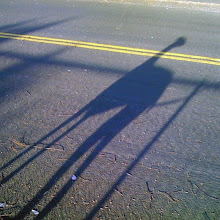Who Put the Red in the Read
 A bookish sort, I. So the other day I volunteered to take part in Read across America, and for 20 minutes read My Friend Rabbit to a class of pre-K kids so tiny I must have looked like a Thanksgiving Day Macy's Parade balloon to them (and perhaps just as full of hot air, who knows). As one who is childless by choice, I figure I have to deal with the little buggers sometimes, and this seemed as contained and safe a way as possible. It turned out to be pretty rewarding, especially when one of the four-year-olds nearly high-fived my palm off afterward in celebration.
A bookish sort, I. So the other day I volunteered to take part in Read across America, and for 20 minutes read My Friend Rabbit to a class of pre-K kids so tiny I must have looked like a Thanksgiving Day Macy's Parade balloon to them (and perhaps just as full of hot air, who knows). As one who is childless by choice, I figure I have to deal with the little buggers sometimes, and this seemed as contained and safe a way as possible. It turned out to be pretty rewarding, especially when one of the four-year-olds nearly high-fived my palm off afterward in celebration.One thing we were told to do as part of the event was explain how and why books are important to us. To help prove my bibliophilic nature, it hit me I still had one of my favorite books from childhood, and I thought bringing something that old might impress the kiddies, since the book is even older than I am (its © 1955, my © isn't even 195_ ). So I fished out How Our Nation Grew (see image above) and was ready to tell them how it was a history book from one of my older sisters' classes (third grade, I'd guess) and it was one of the first things I remember reading, making me a preschooler with a perhaps unhealthy relationship to the Missouri Compromise.
But then I started looking at the book for the first time in years, and started wonder if I grew up in Texas and not New Jersey. The back of the book offers an important hint, as in big letters it says "The Christian Social History Series." That's a bit surprising as we grew up Catholic, and back in that day (197_) Catholics tended not to think of themselves as Christians, anymore than a super special square would deign to call itself a mere rectangle. But, reading through the book, it became clear to me just how holy a history this was, and not just because of the pages where I cut out the images of the Monitor and Merrimack, say, probably for some school report of my own (think of it as semi-intellectual hand-me-downs). For instance, here's how the book gets all sensitive about the issue of Native Americans back in the good old days when they were just Indians. "The Indians did not want to give up their land. They fought to keep it the only way they knew--by cruelty and torture." If they only knew better, than maybe they would have been able to keep their land. Fortunately, they all ended up on reservations, which is pretty nice of us. That meant, "Now the white man could settle the West in peace. He no longer feared the Indians would drive off his cattle, burn his home, or kill his family."
Of course, the Indians were an old, easily reserved problem. For in 1955, the problem was the USSR and "Communism...one of the most evil movements that has ever arisen in the world" since Communists don't believe in god and or that man has an immortal soul. There is no hint in the book that Communism might have anything to do with Marxism, or even anything to do with a political system derived from an economic idea. Turns out it's particularly bad to live in a Communist run country because, "They are allowed to read only Communist books, newspapers, and magazines. These are full of lies, and the people never learn the truth about their country or other countries."
Unlike, say, the children who learn history from "The Christian Social History Series."
But while the book holds a place in my memory if not my moral or political compass, the back cover was oddly highly predictive for this now left coast, left-wing agnostic; take a look at where the long, hard, covered wagon train ends--at the Santa Barbara Mission.

Labels: monday misty memory musings


4 Comments:
There's a moral to that story, though I wouldn't dare tell it. Still, it's fascinating to reflect on. An image. The wrong one, not an icon like the fathers may have steepled it. But an image of the Christian mission in the West?
Awesome that the recognizable SB Mission is on the back of your childhood propaganda book. It's like your own agnostic journey west is somehow part of an American tradition. A comforting kind of irony.
I'm sure what's harder to believe, the content or the fact that there was a time when kids read books. Send a copy to our state board of education, I'm sure they'll consider adopting it in the months they have left before they're all voted out.
Simply one of the best posts I have read anywhere.
Post a Comment
<< Home